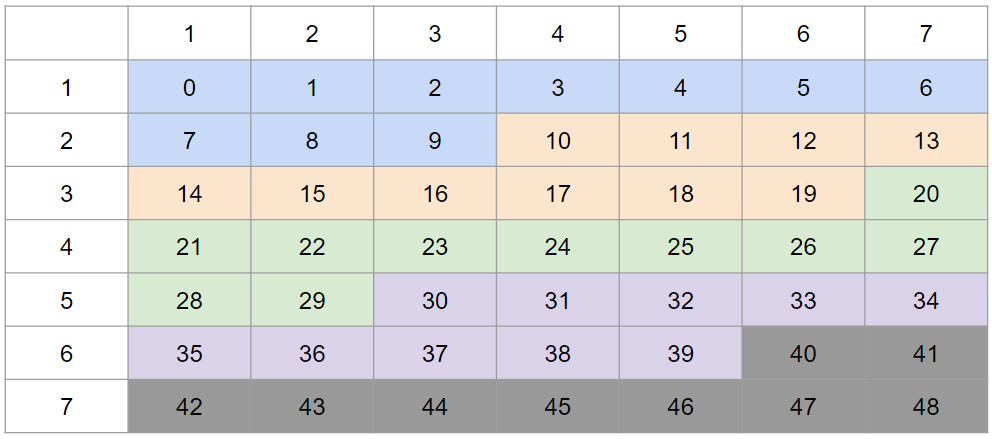[LeetCode August Challange]Day28-Implement Rand10() Using Rand7()
Given the API rand7 which generates a uniform random integer in the range 1 to 7, write a function rand10 which generates a uniform random integer in the range 1 to 10. You can only call the API rand7 and you shouldn’t call any other API. Please don’t use the system’s Math.random().
Notice that Each test case has one argument n, the number of times that your implemented function rand10 will be called while testing.
Follow up:
- What is the expected value for the number of calls to rand7() function?
- Could you minimize the number of calls to rand7()?
Example 1:
Input: n = 1
Output: [2]
Example 2:
Input: n = 2
Output: [2,8]
Example 3:
Input: n = 3
Output: [3,8,10]
Constraints:
- 1 <= n <= 105
solution
Time complexity : O(1) Space complexity : O(1)
// The rand7() API is already defined for you.
// int rand7();
// @return a random integer in the range 1 to 7
class Solution {
public:
int rand10() {
int idx = INT_MAX;
while (idx >= 40)
idx = (rand7()-1)*7 + (rand7()-1);
return idx%10+1;
}
};

共有四個完整0~9的分佈,使用 (a-1)*7 + (b-1) 作為索引值來sample,
若不幸取到40~48,就再sample一次。